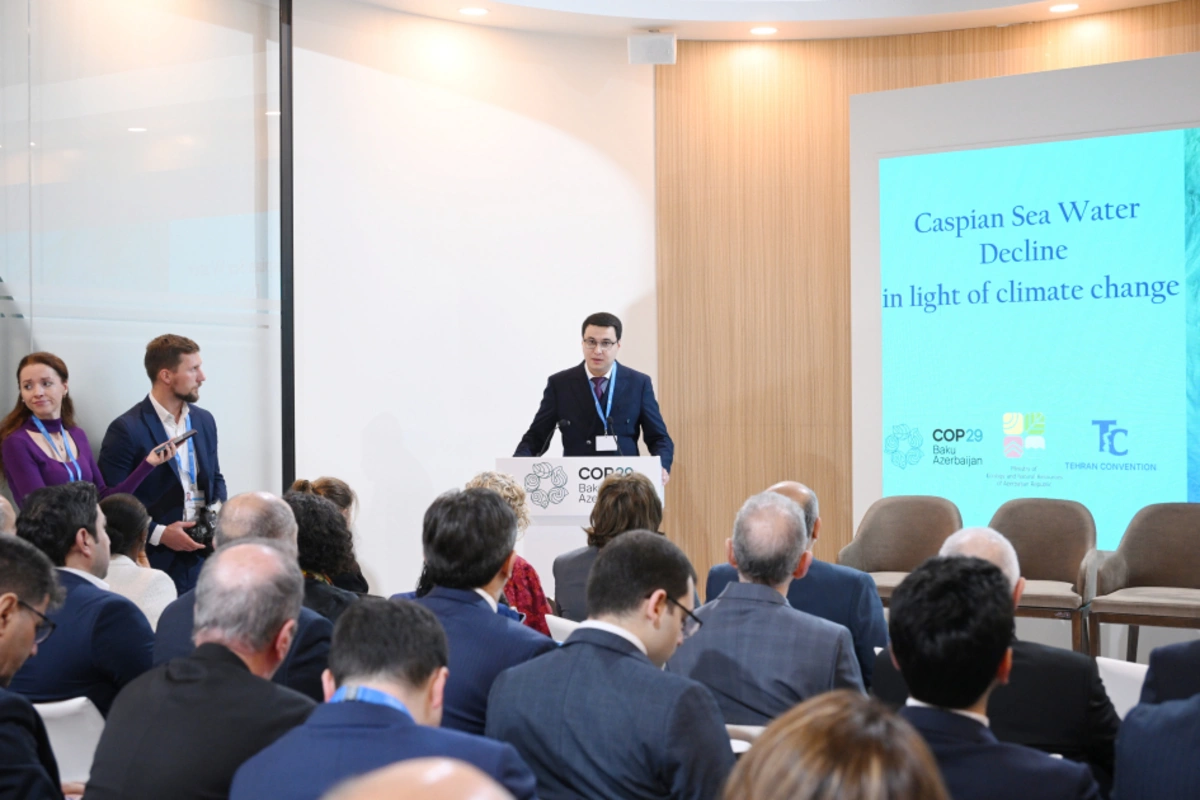
Key discussions revolved around the need for coordinated, cross-border research to address the ecological, economic, and infrastructural impacts of sea-level changes.
Photo: Azertag
A meeting titled “Caspian Sea Water Decline in Light of Climate Change” was held in the Azerbaijani pavilion during COP29, focusing on the critical issue of sea-level changes in the Caspian Sea, The Caspian Post reports.
Organized by the Azerbaijani Ministry of Ecology and Natural Resources and the Secretariat of the Framework Convention for the Protection of the Marine Environment of the Caspian Sea, the meeting brought together representatives from the Caspian littoral states—Azerbaijan, Iran, Kazakhstan, Russia, and Turkmenistan—alongside the Executive Director of the United Nations Environment Programme (UNEP) and officials from international organizations.
Key discussions revolved around the need for coordinated, cross-border research to address the ecological, economic, and infrastructural impacts of sea-level changes.
Umayra Taghiyeva, Azerbaijan’s Deputy Minister of Ecology and Natural Resources, emphasized the role of regional collaboration in protecting the Caspian’s unique ecosystem. She cited climate change as the primary factor driving recent declines in the sea level.
Inger Andersen, UNEP Executive Director, presented a report co-prepared by UNEP and Azerbaijan’s Ministry of Ecology and Natural Resources. The report, titled "Caspian Sea Fluctuations and Climate Change," explores the connections between regional hydrology, climate change, and sea-level decline.
Representatives from the World Bank and Green Climate Fund contributed insights into financial mechanisms and adaptation strategies.
The meeting underscored the importance of expert collaboration among the Caspian littoral states to develop effective adaptation measures and preserve the Caspian Sea’s environmental and economic integrity.
Share on social media